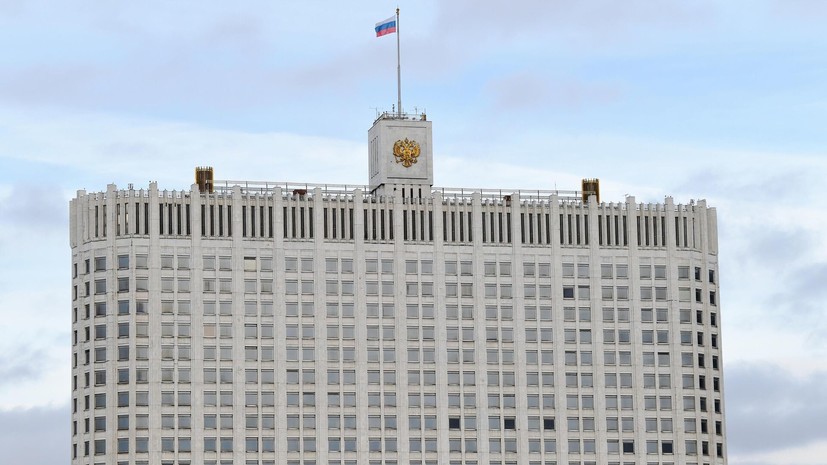The Russian government is exploring the possibility of collecting a one-time additional payment to the budget from large companies in the country.
This was announced on Wednesday, February 8, by First Deputy Prime Minister Andrei Belousov.
“A voluntary contribution from business?
Yes, it is discussed, single.
The fact is that the financial results of last year were very good and for many companies, especially in the first half of the year, for the first three quarters, the results were strongly positive, ”TASS quotes Belousova.
According to him, at the moment the topic is still “under discussion”.
At the same time, as the Deputy Chairman of the Cabinet of Ministers emphasized, we are not talking about raising taxes for business.
The initiative rather implies a one-time payment in the format of windfall tax (tax on windfall profits), Belousov specified.
“The issue is being worked out together with the business.
This is viewed as a voluntary history, business is actively involved in this," the Deputy Prime Minister added.
© Ilya Pitalev
Earlier, the Russian Union of Industrialists and Entrepreneurs (RSPP) proposed to raise the income tax rate for businesses, the Finance Ministry said.
Meanwhile, the government has abandoned such an idea, since not all companies have recently received additional revenue.
Against this background, the authorities want to make fundraising optional and only for those organizations that have been able to extract windfall profits over the past two years.
“In general, changes in the general basic parameters of the tax system, including income tax rates, VAT, personal income tax, property taxes, special regimes, and insurance premiums, are not planned this year.
The government of the Russian Federation is not working on such initiatives,” the press service of the Ministry of Finance said.
According to Vedomosti, citing sources close to the government, the authorities are discussing with businesses the amount of the payment of approximately 250 billion rubles.
The need for such a one-time contribution arose against the backdrop of a sharp increase in the Russian budget deficit, Vladimir Chernov, an analyst at Freedom Finance Global, suggested in a conversation with RT.
“Initially, the budget law for 2023 included a deficit of 2.93 trillion rubles.
Meanwhile, already in January, the figure exceeded half of the entire annual plan, ”Chernov explained.
According to the preliminary estimates of the Ministry of Finance, in the first month of 2023, the Russian federal budget was executed with a deficit of 1.76 trillion rubles.
State treasury revenues decreased by 35% compared to the same period in 2022 and amounted to almost 1.36 trillion rubles.
At the same time, spending increased immediately by 59% to 3.12 trillion rubles.
“Oil and gas revenues amounted to 426 billion rubles and decreased by 46% by January 2022, which is primarily due to a decrease in quotations for Urals oil and a decrease in natural gas exports ... Non-oil and gas revenues amounted to 931 billion rubles and decreased by January 2022 by 28%, mainly due to a reduction in domestic VAT and income tax revenues, ”the ministry explained.
In turn, a sharp increase in budget spending in January is associated with the prompt conclusion of contracts and the financing of certain expenditure items in advance.
According to the department, this approach will ensure a more even cash execution of treasury expenses throughout 2023.
Gettyimages.ru
According to Vladimir Chernov, the current situation with the budget cannot be called critical for the entire economy, since preliminary estimates of the execution of revenues and expenditures of the treasury still correspond to the planned dynamics.
A similar point of view in an interview with RT was expressed by Georgy Ostapkovich, director of the Center for Market Research at the Institute for Statistical Research and the Economics of Knowledge at the Higher School of Economics.
“Current indicators do not mean at all that in the future the deficit will only accelerate.
In principle, it can decrease, but this requires funding sources.
In total, we now have four of them: these are borrowed funds, money from the National Wealth Fund (NWF), tax increases for enterprises and money emission from the Central Bank, ”said Ostapkovich.
Previously, the country's leadership planned to compensate for the expenses of the state treasury mainly through borrowing.
Meanwhile, in January, the authorities additionally launched a budget rule mechanism, according to which part of the NWF funds will go to cover lost oil and gas revenues.
“Along with this, the government decided to ask businesses for a voluntary contribution.
I think enterprises will agree to this, because otherwise the tax base may be raised, which will have to be paid on a permanent basis.
However, now companies have the opportunity to calculate for themselves how much they can give a one-time payment to the authorities, and announce this amount to the government,” Ostapkovich concluded.

